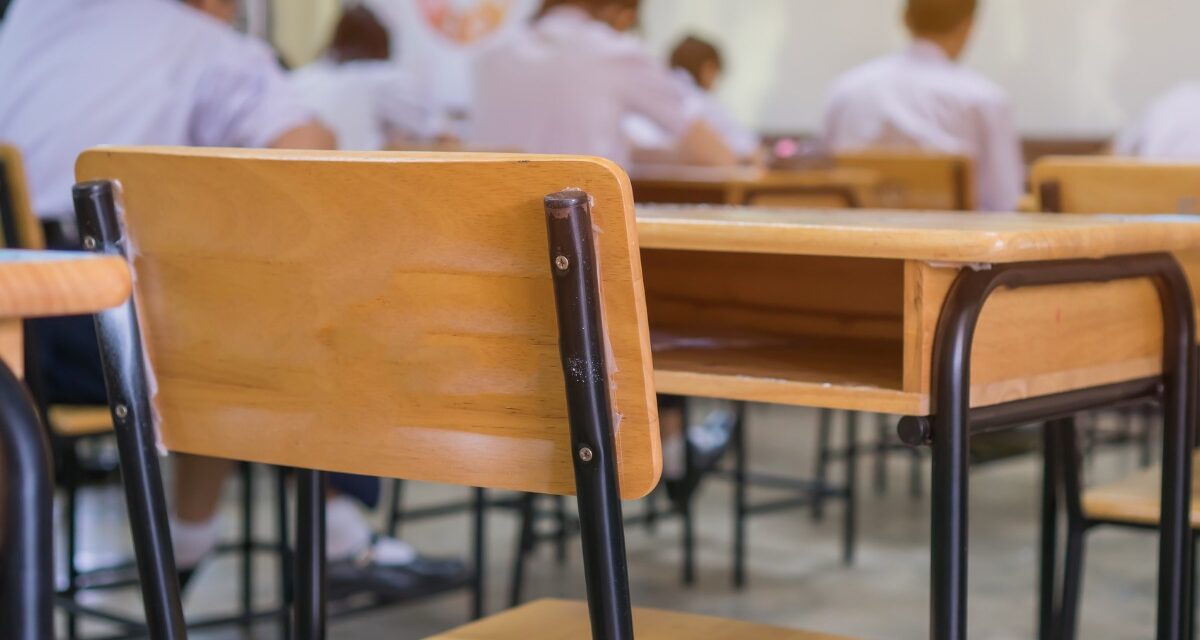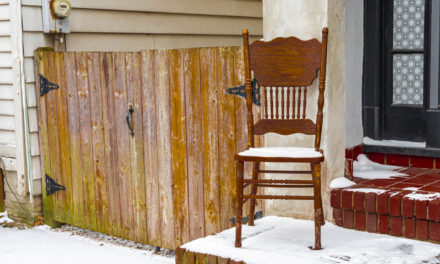High school was a hard time in my life. The transition from an 8th grade class of 65 students in my hometown to high school in a very large neighboring district to which we were bussed, was particularly difficult for me. Couple that with general teen angst, a home life that provided little support and my own sense of the ineptitude of administration, and it was a disastrous situation.
I officially hated school.
As a sophomore, I missed more than 80 days of school. Despite not being present for classes, I managed to pass each of my courses, except PE. At that time, PE was the only class that had an attendance requirement. The ticket to receiving academic credit for classes, at that time, was passing the corresponding end of the year regents exam. Much to my teachers’ annoyance, this was not a problem for me as I was always an excellent test taker.
Ultimately, and somewhat ironically, PE was my downfall. By senior year, I had two PE classes a day, every day. While I appreciated the opportunity to get exercise in school, the swim unit broke me. Getting in and out of the pool two times a day, with the corresponding dressing, undressing and blow drying proved to be too much for me. I dropped out four months before graduation.
I understand that I made my life more difficult by not following the traditional path which had been laid out before me, yet I have not regrets about the educational journey I took. My life did not end when I dropped out of high school, it merely went in a different direction. For a few months, I did very little beyond hanging out, reading and sleeping. Looking back through the lens of the current mental health crisis young people are experiencing, I’d say it’s safe to say that I, at that time, probably was struggling with my own emotional issues.
Eventually, I took a job waiting tables, got my GED and started community college classes at a nearby high school. Yes, I see the irony. Approximately a decade after I quit high school, I received my master’s degree and I have now been working in schools as a librarian for close to thirty years.
I found my way.
Decades later, according to a teacher who addressed the school board at a recent meeting, there is an issue with truancy in the school which my son attends. I mean, the school my son should be attending were it not for his own truancy. It appears he is following in my own footsteps.
I don’t say that with any sense of pride, by the way. Instead, it’s with resignation. There’s nothing I can do to make him go to school and I understand that. Parenting is challenging and, as a friend told me a very long time ago, when it comes to children, all you can do is love them while you have them. Waging a constant battle with my child about his lack of attendance is something I’m frankly not interested in doing.
My son’s lack of attendance at school has been an issue since Covid and it’s not getting better. I’ve scheduled and attended meetings and communicated with teachers and administration about my son’s lack of interest in attending classes. It’s clear to me that I can’t make him go to school. I leave for work earlier than he needs to leave for school and, while I’m available and interested in helping him, I’m unwilling to micromanage this almost 18 year-old person’s life. We all make choices.
In the last couple of years, I’ve had countless conversations with my son during which I advised him to stop wasting people’s time. He’s had teachers who have provided extra support, time and assistance to him in an attempt to get him “back on track” From my perspective, If he doesn’t intend to go to school, he should get more hours at his part time job and simply quit school and take the GED exam.
I’m sure there are many parents who would disagree with me and who believe that there is nothing more important in a young person’s life than completing high school. While I understand their position, I have to ask – what meaning does a diploma hold if one is given to someone without any true effort or standard? How is it possible to convince a child that attending classes and completing assignments is a necessary obligation when they receive the evidence of the accomplishment without having done the actual work?
I often think that I would not want to be a teenager today. Social media and the pandemic collided to create a perfect storm for adolescents and I don’t believe the true extent of the repercussions have yet been realized. School attendance has suffered* tremendously and districts have been forced to develop creative strategies in an attempt to retain students. The Albany City School District has an array of options designed to help kids obtain their diplomas – there’s night school, credit recovery through online learning and GED prep classes, all available to students who wish to avail themselves of these opportunities.
My son, however, has not been inclined to take advantage of any of the alternative routes to high school success. It’s very possible that he will fail to meet the requirements of graduation and will not complete high school. As he’ll learn, he’ll have to deal with the consequences of his choices and find his own path, something I believe he will eventually be capable of accomplishing. Not attending school was his decision, just like it was my own nearly 40 years ago. He’ll have to own it.
Oh – as for that Albany High teacher and his public remarks regarding truancy and grade changing, I worked with him many years ago when we were undergrads. I don’t doubt for an instant the veracity of what he had to say. He was always an honest and hard working employee and I know his comments to the public and school board were prompted by his concerns related to authentic student achievement and academic integrity. Shouldn’t administration and the school board be equally concerned?
*Yes, even in nice suburban districts


